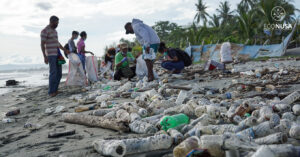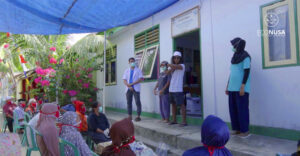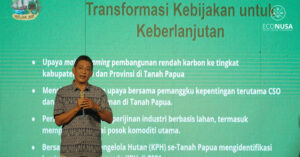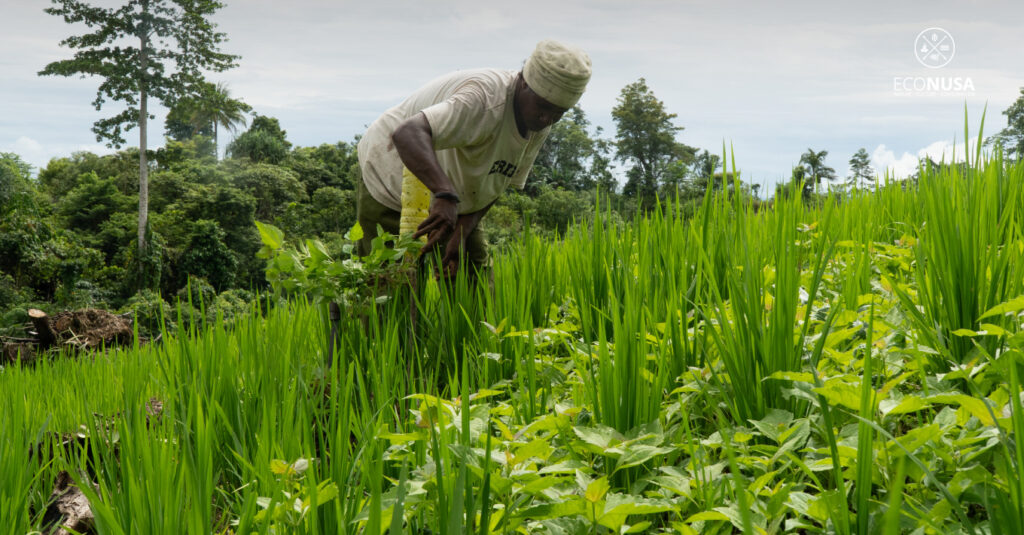
In the Teluk Arguni Bawah District of West Papua lies a remote village called Nagura, surrounded by dense forests and the sea. Reaching the village requires a one to two hour boat journey from the town of Kaimana. In this secluded settlement, the local community is full of enthusiasm as they return to an age-old tradition: rice farming, a practice that had vanished for decades. “We just started again this year,” said Moihasan Muda, a village elder who is participating in the planting activities.
The initiative is supported by EcoNusa, which is facilitating the reintroduction of rice farming. According to Aloysius Numberi, Head of the EcoNusa Office in Kaimana, the effort aims to address a growing dependence on external food supplies. “Until now, people have relied on buying rice from the town. Meanwhile, demand keeps increasing as local food sources are being abandoned,” Alo explained.
He emphasized that this initiative is not only about planting crops but also about restoring the spirit of mutual cooperation. “Group-based farming helps maintain harmony and encourages teamwork. With collective effort, the rice crops can be properly cared for until harvest,” he added. Read Also: Crafting Food Security at Seraran Village with Organic Rice
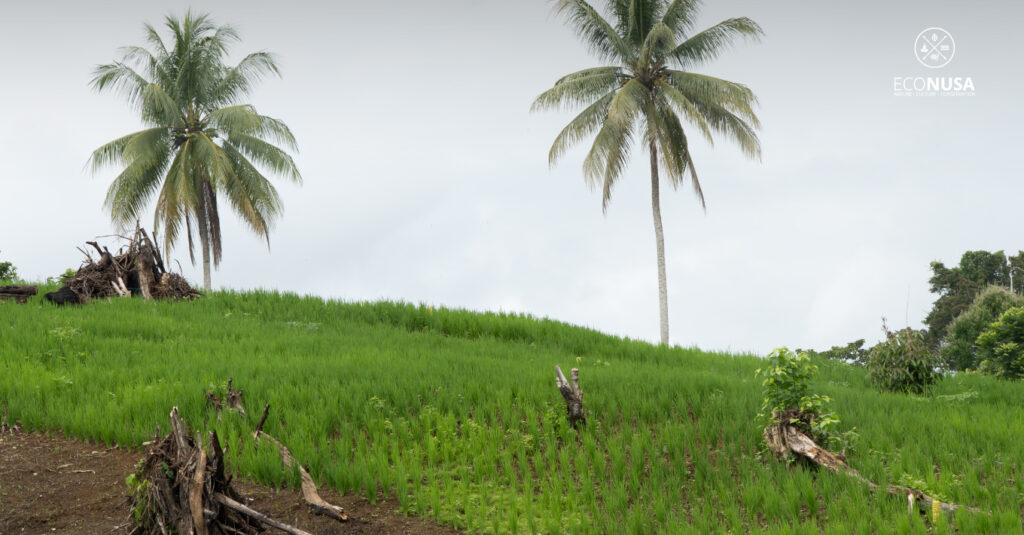
Local Knowledge and Community Support
Technical assistance is being provided by Alif Furu, a Social Transformation School alumni and resident of nearby Seraran Village. In 2023, Alif successfully cultivated organic upland rice in his own village and is now sharing that experience with the people of Nagura.
Rofiko Torut, an EcoNusa facilitator, explained that the assistance covers all essential stages—from land clearing and planting to pest control. “Villagers are taught how to prepare the land properly to ensure optimal results,” said Fiko.
As part of environmentally friendly farming practices, the entire method is organic. Rice seeds are soaked in turmeric water to prevent early pest attacks. Liquid fertilizer is made from natural materials readily available in the village, such as coconut water, banana stalks, and fermented leaves. Pesticides are homemade, using household ingredients like shallots, garlic, and chili, which are soaked and fermented before being sprayed on the plants. Read Also: Kaimana Copra Distributed to National Markets
Battling Wild Boars and Deer
Beyond insect pests, the villagers also face threats from wild boars and deer. Being surrounded by forest, Nagura is home to a wide variety of wildlife, including these animals, which often damage the crops. “Deer eat the young leaves, and wild boars go for the mature rice,” said Moihasan.
To counter this, villagers build wooden fences around their fields. They also take turns guarding the fields by spending nights there during the fruiting period. “If we don’t guard the fields, we risk losing the whole harvest,” Moihasan added.
Reviving a Forgotten Tradition
Rice farming is not entirely new to Nagura. Moihasan recalls being taken to rice fields as a child, but the tradition faded over time with changing lifestyles. “We stopped when we were still young,” he said.
In 2013, villagers briefly resumed rice cultivation through a government program, but the effort ceased after one harvest. Today, with a participatory approach and strong community involvement, there is renewed hope.
“We usually buy rice for our meals. Hopefully this time it works, so we can eat rice from our own land,” Moihasan expressed with hope.


